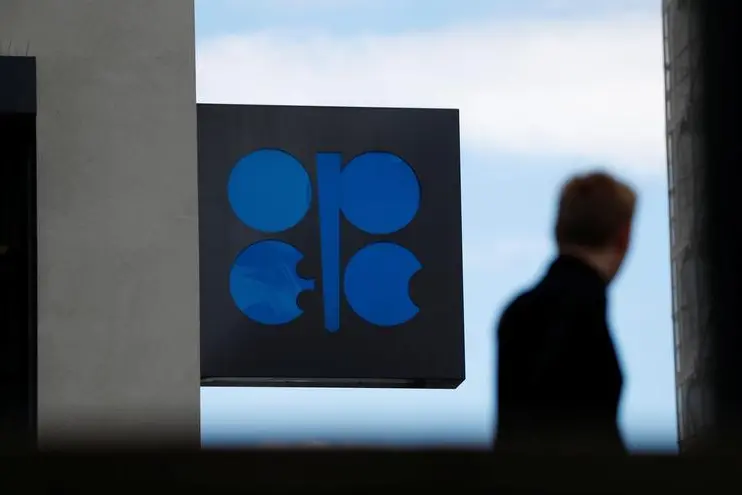PHOTO
Oil prices
Oil prices rose early on Wednesday after the American Petroleum Institute said on Tuesday that United States crude and fuel stockpiles dropped by a higher-than-expected amount last week.
Crude inventories fell by 3.2 million barrels in the week to July 20 to 407.6 million barrels, compared with analyst expectations for a decrease of 2.3 million barrels, easing worries of oversupply.
Brent crude was up 29 cents, or 0.4 percent, at $73.73 a barrel by 0035 GMT. The global benchmark settled 38 cents higher at $73.44 a barrel on Tuesday, after climbing as high as $74.
U.S. West Texas Intermediate rose 22 cents, or 0.3 percent, to $68.74, having settled the previous session up 63 cents, or nearly 1 percent.
Global markets
Asian shares rose early on Wednesday tracking a surge on Wall Street, as strong second quarter earnings lifted U.S. shares. Trade tensions between the U.S. and China limited gains.
MSCI’s broadest index of Asia-Pacific shares outside Japan gained 0.2 percent.
The index extended the previous day’s gains made after China said it will adopt a more vigorous fiscal policy to cushion the impact of external uncertainties.
Overnight on Wall Street, the S&P 500 closed at its highest level since February 1 as better than expected second quarter earnings results from Alphabet boosted U.S. stocks.
“Gains by U.S. shares are providing support for equities, as well as China’s stimulus plan. Corporate earnings will continue to come out and these will be a key focal point for the markets, which also have to keep an eye on trade developments,” Soichiro Monji, senior economist at Daiwa SB Investments in Tokyo, told Reuters.
Middle East markets
Saudi Arabia’s index dropped 0.5 percent on Tuesday as petrochemical shares weighed on the index after a drop in oil prices.
National Industrialization Company (Tasnee), dropped 3.3 percent on Tuesday, despite posting an increase in second-quarter net profit on Monday, to 295.8 million riyals from 93.6 million riyals a year earlier.
Saudi banks such as Saudi British Bank (SABB) and Arab National Bank closed higher.
SABB, which gained 1.5 percent, proposed a cash dividend of 0.96 riyals per share for the first half of the year. Arab National Bank was up 0.3 percent after announcing a second-quarter profit increase to 919.1 million riyals on Tuesday, from 849 million riyals last year.
Dubai’s index dropped 0.2 percent, with most volumes traded on Drake and Scull International (DSI). DSI gained 1 percent on Tuesday.
The Abu Dhabi index added 0.3 percent, blue-chip First Abu Dhabi Bank gained 0.8 percent ahead of the publication of its financial results, which it posted after market close. The bank registered a 19 percent increase in second-quarter net profit, which amounted to 3.1 billion dirhams ($844.04 million).
Qatar’s index added 1.9 percent, with 33 shares trading higher and nine shares trading lower.
Egypt’s index added 1.2 percent, Oman’s index dropped 0.6 percent, while Kuwait’s index gained 0.1 percent and Bahrain’s index rose 0.8 percent.
Currencies
The dollar was mainly unchanged against a basket of six major currencies early on Wednesday.
The euro edged up 0.05 percent to $1.1688, while the dollar added 0.05 percent to 111.26 yen.
Precious metals
Gold prices were trading higher on Tuesday.
Spot gold gained 0.13 percent at $1,225.70 per ounce by 1736 GMT.
U.S. gold futures for August delivery settled down 10 cents, or 0.01 percent, at $1,225.50 per ounce.
Gain a deeper understanding of financial markets through Thomson Reuters Eikon.
(Writing by Gerard Aoun; Editing by Michael Fahy)
(gerard.aoun@thomsonreuters.com)
09:16
A new version of the Trading Middle East newsletter is being launched in late July, 2018. To keep receiving the newsletter, please subscribe using this link.
Our Standards: The Thomson Reuters Trust Principles
Disclaimer: This article is provided for informational purposes only. The content does not provide tax, legal or investment advice or opinion regarding the suitability, value or profitability of any particular security, portfolio or investment strategy. Read our full disclaimer policy here.
© ZAWYA 2018





















